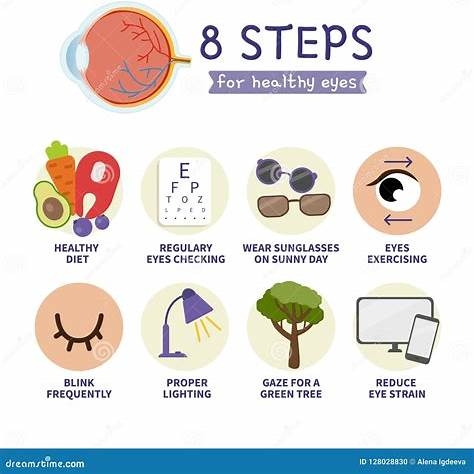A recent study published in the British Journal of Ophthalmology highlights the significant impact of a healthy lifestyle on retinal neurovascular health. Utilizing data from the UK Biobank, researchers found that individuals adhering to healthier lifestyle habits exhibited lower inflammation levels and improved retinal health, thereby reducing the risk of vision-threatening conditions such as age-related macular degeneration (AMD) and retinal vascular occlusion (RVO).
Key Findings
-
Reduced Risk of Retinal Diseases: Participants with higher healthy lifestyle scores (5–6) had a 29% lower risk of developing AMD and a 25% lower risk of RVO compared to those with lower scores (0–1).
-
Improved Retinal Metrics: Higher lifestyle scores were associated with favorable retinal measurements, including a 2% increase in artery-to-vein ratio (AVR), a 0.22 µm increase in central retinal artery equivalent (CRAE), and a 0.36 µm decrease in central retinal vein equivalent (CRVE). Additionally, enhancements were observed in retinal nerve fiber layer (RNFL) thickness, ganglion cell-inner plexiform layer (GCIPL), and photoreceptor segment (PS) thickness .
-
Inflammation as a Mediator: The study introduced the INFLA-score to quantify inflammation levels. Findings indicated that reduced inflammation partially mediated the relationship between a healthy lifestyle and improved retinal health, accounting for 14.8% of the reduced AMD risk and up to 26.86% of the improvements in PS thickness .
Components of the Healthy Lifestyle Score
The healthy lifestyle score ranged from 0 to 6, based on six modifiable factors:
-
Physical Activity: Engaging in regular exercise.
-
Diet: Consuming a balanced diet rich in fruits, vegetables, and whole grains.
-
Sleep Duration: Maintaining optimal sleep patterns.
-
Smoking Status: Avoiding tobacco use.
-
Alcohol Consumption: Moderating alcohol intake.
-
Bodyweight: Achieving and maintaining a healthy body mass index (BMI).
Each positive behavior contributed one point to the overall score, emphasizing the cumulative effect of lifestyle choices on retinal health.
Implications for Eye Health
This study underscores the importance of lifestyle modifications in preserving retinal health and preventing vision-related diseases. By adopting healthier habits, individuals can significantly reduce inflammation, a key factor in the development of retinal conditions. These findings advocate for a proactive approach to eye care, integrating lifestyle interventions alongside regular ophthalmic assessments.
Conclusion
Adhering to a healthy lifestyle has a profound impact on retinal neurovascular health, primarily through the reduction of systemic inflammation. This research provides compelling evidence for the role of modifiable behaviors in preventing retinal diseases and promoting overall ocular well-being.
For more information on maintaining eye health and personalized advice, consult with a qualified ophthalmologist.





